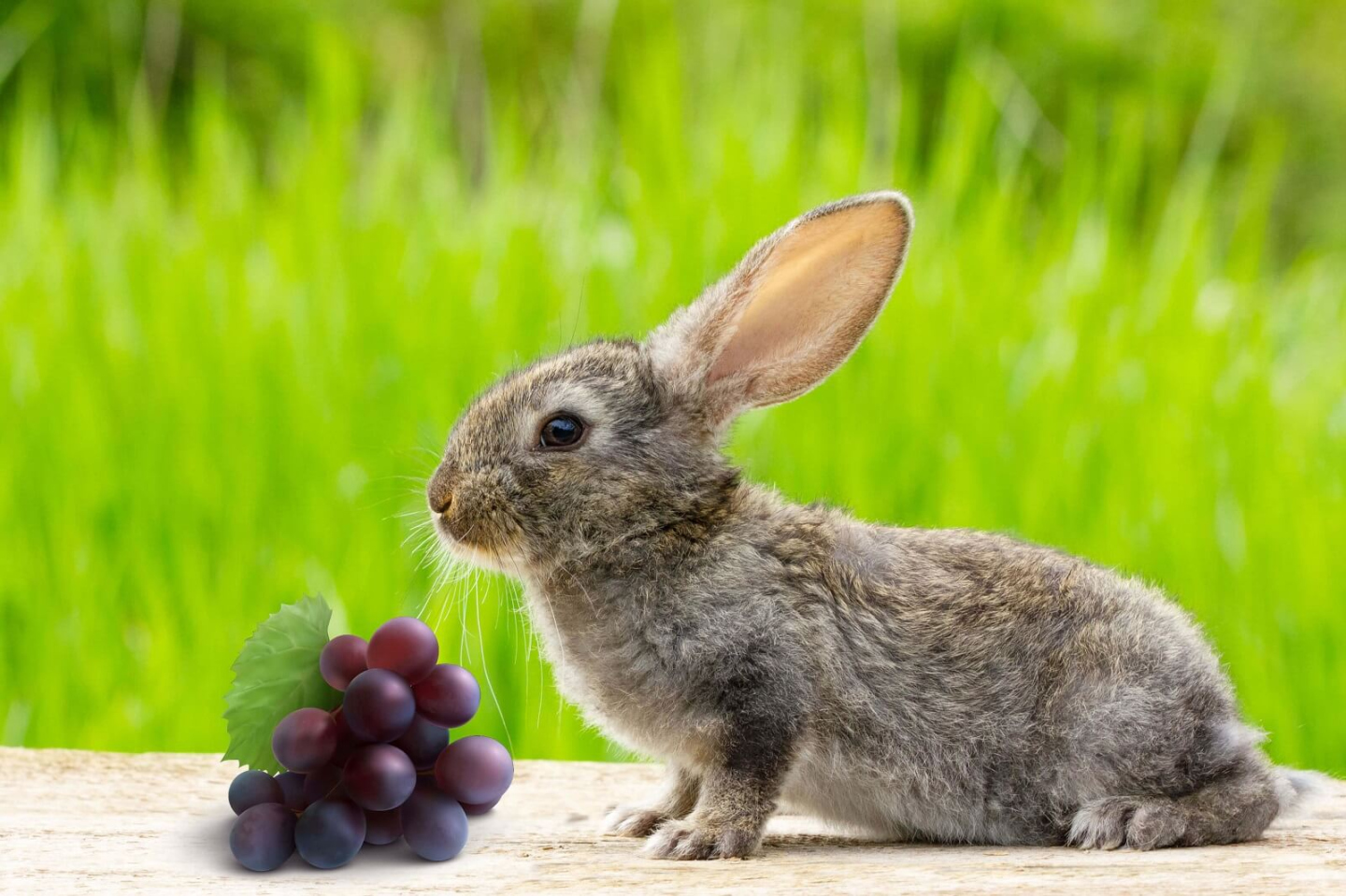Can Rabbits Have Grapes?
Rabbits are herbivorous animals and have a diet primarily composed of hay, fresh vegetables, and a small amount of fruits. While fruits can be a tasty treat for rabbits, it is crucial to know which fruits are safe for them to consume. One fruit that often raises concerns among rabbit owners is grapes. In this article, we will explore whether rabbits can have grapes and discuss the potential risks and benefits associated with feeding grapes to rabbits.

Risks of Feeding Grapes to Rabbits
Although grapes are generally considered safe for human consumption, they can pose certain risks to rabbits. Let’s take a closer look at these potential risks:
- Grape toxicity: Grapes and raisins are known to be toxic to dogs, causing kidney failure in some cases. However, there is limited scientific research on the toxicity of grapes in rabbits. Some rabbits may be more sensitive to the compounds present in grapes and develop digestive issues or other health problems.
- Potential choking hazard: Rabbits have a delicate digestive system and can choke on large pieces of food. Grapes are relatively small, but if a rabbit tries to swallow a whole grape without chewing it properly, it may lead to choking.
- High sugar content: Grapes are naturally sweet and contain a significant amount of sugar. Rabbits have a sensitive digestive system that is not well-adapted to processing high levels of sugar. Consuming excessive amounts of grapes can lead to digestive upset, including diarrhea and bloating.
Potential Benefits of Feeding Grapes to Rabbits
While there are risks associated with feeding grapes to rabbits, there may also be some potential benefits. Let’s explore these benefits:
- Source of hydration: Grapes have a high water content, which can help keep rabbits hydrated, especially during hot weather.
- Nutritional value: Although rabbits primarily require a diet rich in hay and leafy greens, small amounts of fruits like grapes can provide additional vitamins and minerals. Grapes contain vitamin C, vitamin K, and dietary fiber, which can contribute to a well-rounded diet.
- Enrichment and variety: Introducing grapes as an occasional treat can provide rabbits with mental stimulation and variety in their diet, preventing boredom and promoting overall well-being.
It is essential to remember that grapes should only be given to rabbits in moderation and as an occasional treat. The main components of their diet should consist of hay, fresh vegetables, and limited amounts of fruits.
Frequently Asked Questions (FAQs)
1. Can rabbits eat grape skins?
Yes, rabbits can eat grape skins. However, it is crucial to thoroughly wash the grapes to remove any potential pesticide residue. Additionally, remember to feed grapes in moderation as part of a balanced diet.
2. How many grapes can I give to my rabbit?
The number of grapes you can give to your rabbit depends on its size and overall diet. As a general guideline, one to two small grapes, or half of a large grape, per week can be considered an appropriate amount. Always monitor your rabbit’s reaction and consult a veterinarian if you notice any digestive issues.
3. Are there any alternative fruits that are safer for rabbits?
Yes, there are several other fruits that are generally considered safer for rabbits. These include berries (such as strawberries, raspberries, and blueberries), melons (such as watermelon and cantaloupe), and apples (without the seeds). Remember to introduce new fruits gradually and in small amounts to avoid digestive upset.
4. What are the signs of grape toxicity in rabbits?
As previously mentioned, there is limited scientific research on grape toxicity in rabbits. However, if your rabbit consumes a large amount of grapes or shows any signs of digestive discomfort, such as diarrhea, bloating, or changes in behavior, it is essential to consult a veterinarian immediately.
In conclusion, while grapes can be enjoyed as an occasional treat by some rabbits, it is crucial to be aware of the potential risks associated with feeding grapes to rabbits. Moderation is key, and it is always best to consult with a veterinarian to ensure your rabbit’s diet meets its specific nutritional needs.
Related Articles…
Copyright Notice:
This website utilizes images found online, all copyrights are retained by their original owners. If you would like an image removed, kindly contact us.